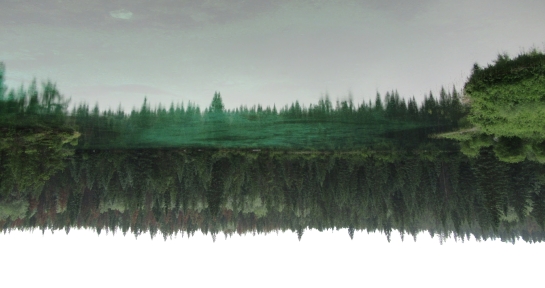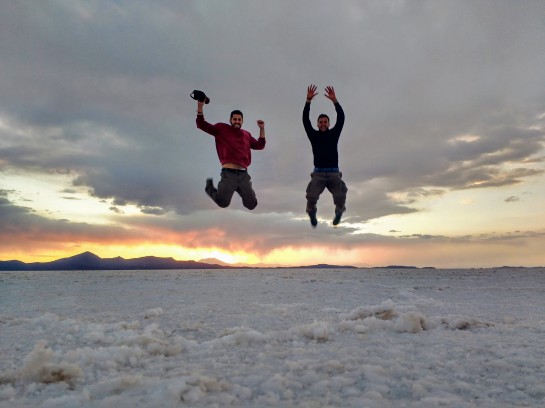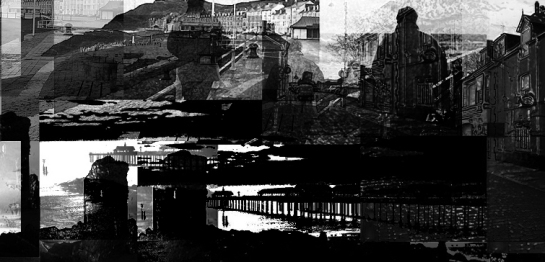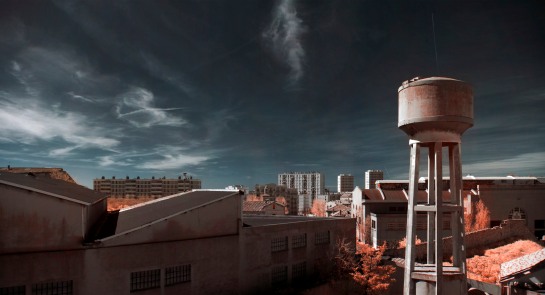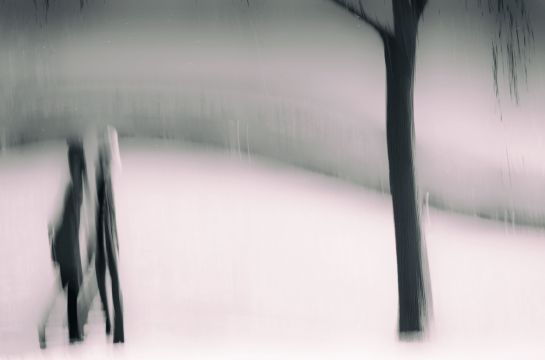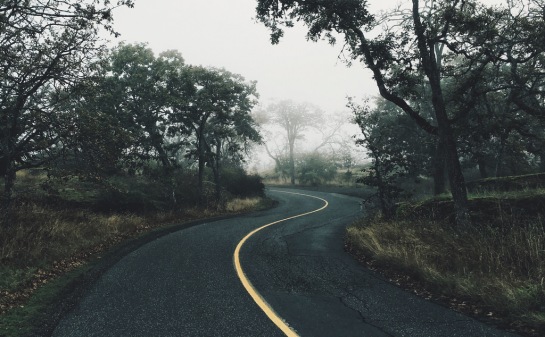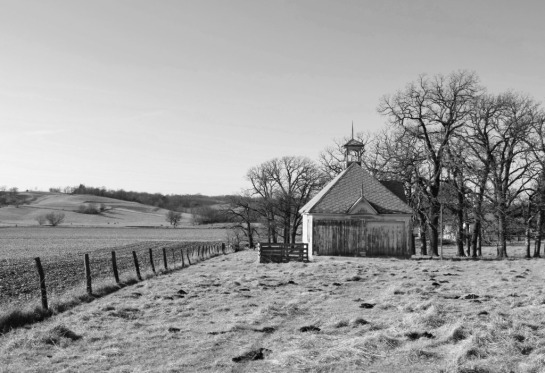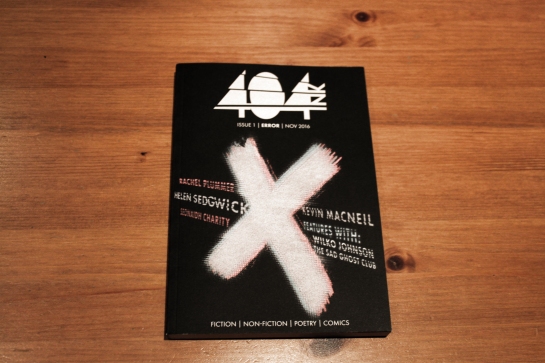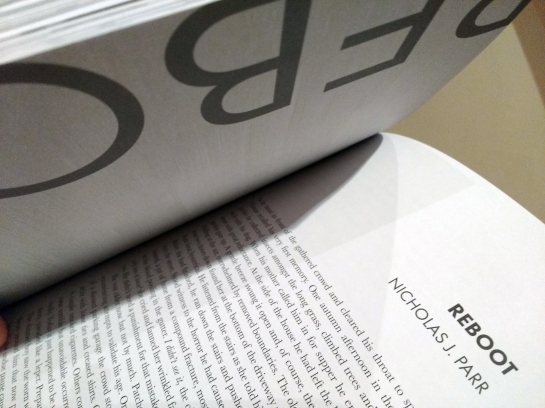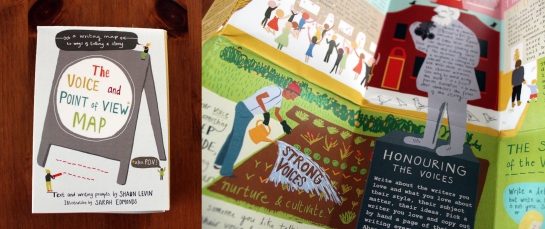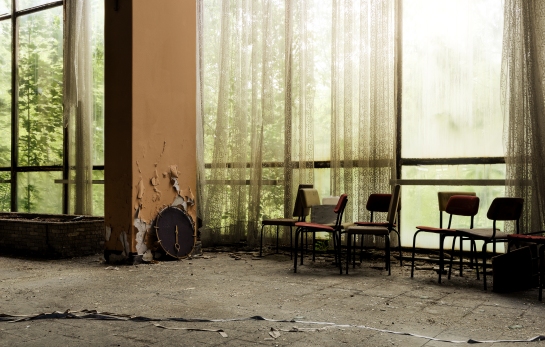Mostly the park looked the same. Patches of grass on wet dirt that captured loose plastic bags and sheets of old newspapers and the prints of its visitors. It was still found in the city centre on flat ground with a tall brick wall that ran along the entire perimeter, breaking only for rusted iron gates in each corner, ensuring the surrounding city did not encroach and swallow the space entirely. But the park seemed smaller than he remembered, and there were fewer trees now. Or maybe his memory had planted those trees, for now only one stood in their immediate vicinity, and it did not seem a native tree to him, and it looked unhealthy and rather grotesque, with leaves like wrinkled skin.
On every side of the park tall constructions dominated the skyline above the wall, concrete towers that rose up beyond and into the starless ceiling of cloud or smoke, and from that elevated position they observed the city-dwellers, the ambitious and the struggling, the violent and the meek, as if custodians of these people and in control of their ultimate fate. As dusk descended despairingly surreal scenes were taking place in the hundreds of windows, in the light of flickering television sets, the couple witnessed obscure art hanging on walls of peeling paper, couples kissing with passion and lust, athletic groups frozen in synchronised poses, and beyond balconies draped with items of clothing the silhouettes of rangy figures taking part in some ritualistic dance to the beat of unheard music.
She looked at his face and he was frowning. What’s wrong? she asked.
Nothing, he said. They walked slowly through the park together hand-in-hand, stopping occasionally to light a cigarette or take a photograph.
Is it how you remember?
He shrugged. It’s how I expected it but it’s not what I remember, no.
Did you live in one of these blocks?
No. Possibly. Most of them are new. But some were always here, they’ve just grown a little taller.
Do they think they can see us from up there?
The park became busier. A woman was throwing a ball for her dog to chase. A pair of students passed them on bicycles. Commuters, he assumed, given the time, were filtering through the gate nearest the station. At some point between afternoon and evening they realised it was brighter than it should have been. In each of the four corners of the park was a towering floodlight that spat a bright and artificial light across everything beneath. Because of the earlier rain the spotlights were creating a dazzling haze and everything beyond the walls seemed ethereal. The lights and the high-rise blocks had imprisoned the park and it no longer provided the escape it once had.
Do you think they can see us?
Yes, they can, if they want to, he replied, but I don’t think they are interested in what or who is down here.
I wonder what we look like to them?
Under these lights, everyone has four shadows. Look, she gestured, and walked in a circle. He watched, and where her feet touched the group, four shadows reached along the ground in different directions. It unsettled him. These floodlights, they are new, he told her. I find it too bright. When I was younger, they locked the park at night. He nearly told her why the park had been closed at night but it was not the right time and he kept that to himself.
What must we look like, he thought, as the dog, he wasn’t familiar with the breed, ran passed them, and as it did so it was limping heavily, and as it bounded after the ball it slipped and fell over in the dirt several times, and she chuckled to herself beside him and squeezed his arm tightly. Can we go? she whispered, I’m starting to get cold.
What must we look like to them, to the residents of the towers, to the commuters heading home, to the homeless, to the tourists, to other visitors like themselves. To the man sat by the main gate, asking for spare change, with a fentanyl patch on his arm and a severe opiate addiction. With his bloodshot eyes barely visible, the addict scratches at his facial hair, shuddering and shivering but continuing to smile, as he sees two barely human streaks on an otherwise bleak landscape approach him. One of them bends down to drop some coins into his hat, before walking out of the park without looking back.
© Nicholas J. Parr, 2017.
